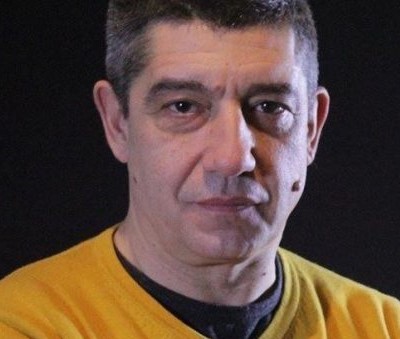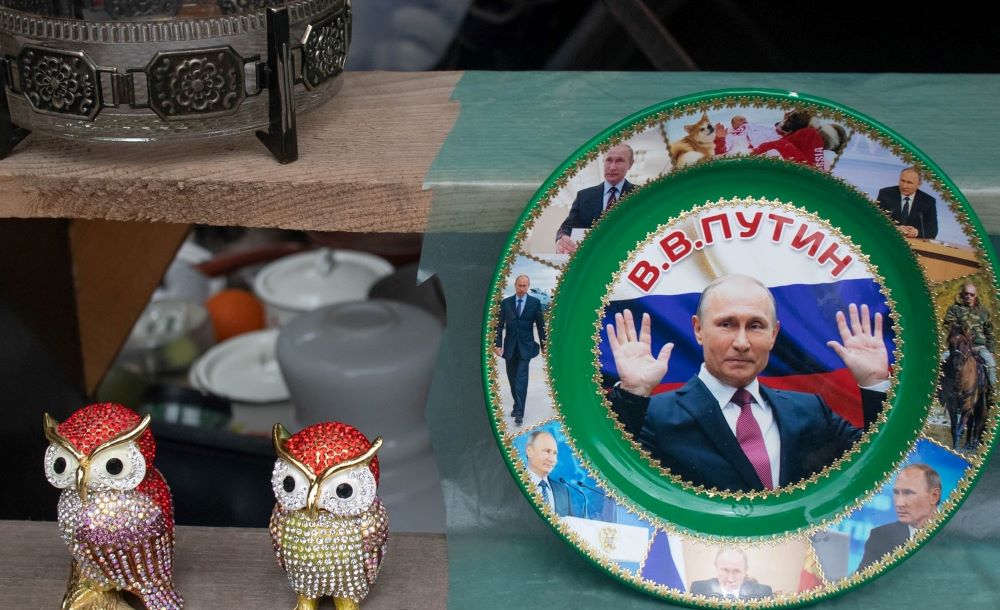The EU’s confusion over the region, the free fall of its credibility, is a perfect hypersonic rocket that Europe is giving Putin for free.

Borjan Jovanovski
The war in Ukraine is being watched as a football match in the Balkans. On one stand are those who support Putin, on the other, those who are on the side of the Ukrainians. Social networks are full of emotions, hate speech and a little reason for this ‘match’ whose outcome will inevitably, in the near future, bring these passionate fans on the field as players unprepared to play, because they came to the stadium just for fun, but history will not accept that as an excuse and will ask them to finish the match as the main players. Surprised in the arena, we will find ourselves faced with a choice: end up as gladiators who would be exterminated to the last, or participate in a beautiful sports fair-play event that would end with Beethoven’s ‘Ode to Joy’.
As things stand on the front, it seems that Moscow’s nervousness, pressured by sanctions, isolation and the slow progress of its army on the ground, will quickly grow into a nervous breakdown, which will lead Moscow to reach out to various alternative tools that will disperse the front across the continent in order to increase the value of their negotiating position. One of them is the numerous installations in this region. Some of them have been actively working for several years, but now the numerous ‘sleepers’ in charge of crisis situations would be hired, too. The Kremlin has apparently built an effective infrastructure in recent years using the disorientation of Europe, which is now recognized in the hundreds of obscure media that intensively spread Russian propaganda about the war in Ukraine, but also in the well-known Russian narratives aimed at affirming Balkan atavisms. The famous installations and the still invisible sleepers are waiting for the order from the Kremlin to activate all potentials at the numerous fragile points in Bosnia, Serbia, Kosovo, Montenegro and Macedonia. All is set for this scenario, only activation is awaited. For example, support for the EU is plummeting in Macedonia, and, according to a survey by the Institute for Democracy, support for Putin’s Eurasian Economic Community, which no one knows anything about, is growing, and these initiatives have been supported by the outright outrage over the EU’s betrayed promises. The EU’s confusion over the region, the free fall of its credibility, is a perfect hypersonic rocket that Europe is giving Putin for free.
The second option is for the EU to take advantage of this unexpected shock from the war in Ukraine, which has finally made it realize that its comfort zone has long been in chaos that threatens to destroy the foundations of the European construction. We still do not know whether this unexpected awakening of Europe will continue with a hangover due to a long sleep, or with a quick departure from the position where the ground under its feet is collapsing. Putin’s arrogance and aggression should be the last warning that there is an urgent need to revitalize the fundamental values that raised Europe from the ashes of World War II, as well as all known mechanisms for the transformation of societies, such as the enlargement process at the beginning of the new millennium. The unexpected EU unity provoked by Putin should result in the rapid isolation of the growing demagogic populist political structures throughout Europe and especially in the Balkans, which supply kerosene for their power from the increasingly inefficient EU, both in terms of its citizens and beyond its borders.
The Balkans were the scene where the degradation of European values was revealed, but in the current constellations, the Balkans could also become a scene where the EU will rediscover itself and its own values. Given the increasingly unpredictable development of the situation in Ukraine, June seems like the last chance for the European Council to decide on the start of negotiations for Albania and Macedonia, intensifying the negotiation process followed by political will for rapid integration of the region. It sounds cynical and paradoxical, but in the absence of European leadership, Putin, quite by accident and contrary to his plan, turned out to be Charlemagne of the 21st century.
Borjan Jovanovski is a journalist, editor and host of the show Click Plus on TV 21 and a Euronews correspondent from Macedonia



Leave A Comment